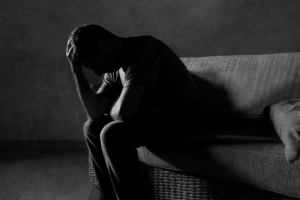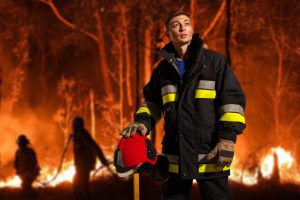Talking about the current relationship between law enforcement and protesters is like poking a raw nerve. The George Floyd Protests of 2020 may be past but not forgotten. We believe that the majority of men and women first responders in our country were appalled and disgusted by the acts of Derek Chauvin. Still, the fallout from it affected everyone with a badge, whether deserving or not, and scrutiny and hostility from the public have been rising. Activism groups and first responders are both villainized, and the mental toll on the country is growing heavier.
Who’s right isn’t as important as who’s hurting. We can all agree that the impact of racism on minorities is critical and needs continued dedicated work. We also want to recognize the importance of the mental health of all public safety servants, which includes our men and women first responders who also face discrimination for their race, beliefs, or sexual orientation. Many public safety professionals feel unsupported and worse that the departments and communities they vowed to serve and protect are against them. These issues create additional hardships, disillusionment, and increased risk to an already challenging and dangerous profession.
“When you see gross negligence, an officer.. acting unprofessionally, we’re all painted by the same brush.” – Mark DiBona.
First Responders Under Pressure
We’ve written several articles about public safety challenges, including the job’s intense psychological and physical strain, which comes from within the department, the street, and at home. The additional pressure and suspicion from the general public have magnified that stress.
The increased scrutiny has caused a lot of experienced officers to seek early retirement and there is a decreased pool of candidates interested in these service fields. Seasoned professionals recall when the public was against them, such as in the 60s, but they say they’ve never seen it like this. They believe this leaves a younger generation on the front lines who are ill-prepared to deal. Some retired officers say they wouldn’t encourage the young to enter this profession right now.
Caught Between Cultures
African American and minority first responders are the most affected by these issues. Many are in a state of biculturalism, having to be on guard to defend both communities in which they belong. Some receive ultimatums or scrutiny from their family for being “too blue to be black.” We can imagine the reverse may be applicable in some department cultures. Most have faced overtly racist situations within their agencies and the field, and they have handled them with professionalism and grace. However, this doesn’t leave them unscathed.
Maintaining mental health comes with an even greater challenge for African American officers. Even after overcoming the stigma of seeking help, many find themselves educating their therapists about the realities of their lives, which is why we need unbiased and culturally competent therapists to assist them.
Helping Those Who Serve
“Just one person smiling or waving would change my whole outlook on the day.” – Officer Brian Vaughan.
The best and easiest way as a civilian to help public safety professionals is to remember they’re human and that most choose this life out of a genuine desire to help their communities.
We can also help by funding and maximizing resources to effectively and efficiently recruit, vet, train, and support suitable first responders to serve and protect our communities. FMRT and other culturally competent psychologists help assure the mental and physical fitness of those with authority over others before hire and throughout their careers. Having access to culturally competent psychologists, like FMRT, and mental health providers who understand the unique demands is crucial for the people who serve and our nation.
https://www.gpb.org/news/2021/06/14/violence-stress-scrutiny-weigh-on-police-mental-health
https://www.webmd.com/mental-health/news/20210528/police-blues-rising-stress-puts-officers-at-risk








